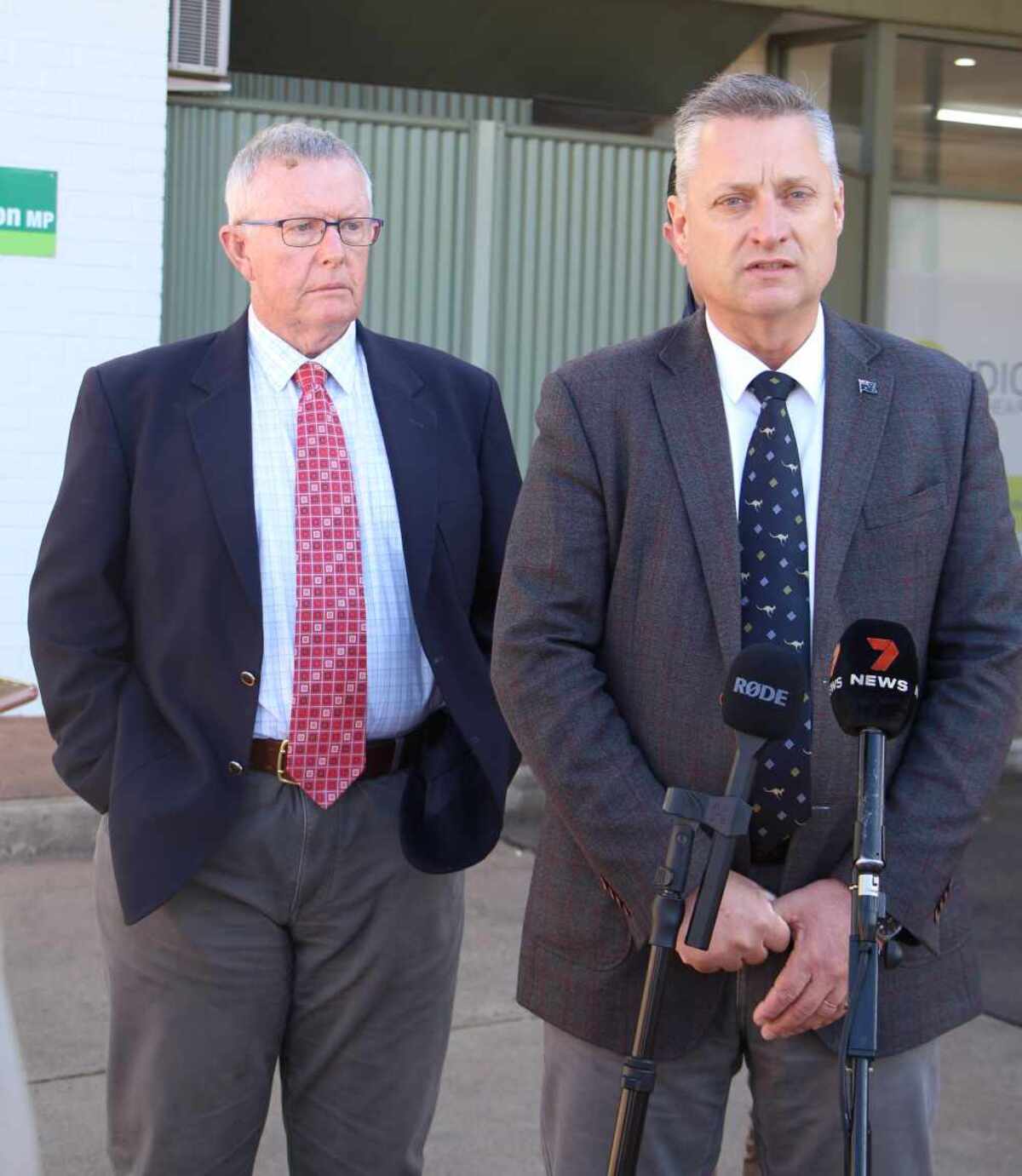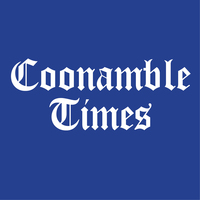Broad concerns over Government 'censorship bill'
Paula Doran
29 September 2024, 9:20 PM
 Federal Member for Parkes Mark Coulton (left) and The Nationals’ candidate for Parkes Jamie Chaffey oppose Labor’s new Misinformation Bill.
Federal Member for Parkes Mark Coulton (left) and The Nationals’ candidate for Parkes Jamie Chaffey oppose Labor’s new Misinformation Bill.Mark Coulton says the Federal Government’s new Bill on Misinformation is an attack on freedom of speech.
And he’s not alone in his concerns about the Communications Legislation Amendment (Combating Misinformation and Disinformation) Bill.
The Human Rights Commission has listed multiple aspects of the draft Bill which could lead to overt censorship, putting Government in a position of not being questioned for any content they release.
The Federal Member for Parkes has committed to fighting the Bill, which he says has no place in a country which values less stringent censorship.
“When the Government released its first Misinformation Bill last year, more than 20,000 people put in submissions and comments opposing it, and so it was withdrawn in disgrace,” he said.
Mr Coulton said that with this latest attempt, Labor has again demonstrated a failure to respect the fundamental right of Australians to free speech.
“People in the Parkes electorate just don’t trust Mr Albanese or his Government to speak the truth on their censorship laws.
“We saw it during the Voice debate, when Labor labelled any view it didn’t like or agree with as ‘misinformation’.”
The Nationals’ candidate for Parkes Jamie Chaffey said this legislation is worrying and could have significant consequences.
“Misinformation is inherently subjective and the idea that a government regulator is going to tell Australians what they can and cannot say is concerning,” Mr Chaffey said.
“Australia is one of the greatest democracies and this bill could change that.”
Digital platforms under pressure
Shadow Communications Minister David Coleman said the Bill gives digital platforms an enormous financial incentive to censor statements.
“If the Government decides that they have not censored enough ‘misinformation’, they can face large fines,” Mr Coleman said.
“Digital platforms don’t care about the free speech of Australians – but they do care about their profits. So they will censor large amounts of material to avoid the risk of fines.
"The provisions of the Bill are extremely broad and would capture many things said by Australians every day."
“Labor’s planned laws would also give the Communications Minister the powers to personally order Misinformation Investigations and Misinformation Hearings,"said Mr Coleman.
"This is wide open to abuse and an extraordinary power for a Minister to hold in a democracy.”
Human Rights Commission opposes the Bill
The Australian Human Rights Commission has multiple concerns about the Bill.
Amongst them, is the overly broad and vague way key terms – such as misinformation, disinformation and harm – are defined. “Laws targeting misinformation and disinformation require clear and precise definitions.
“Drawing a clear line between truth and falsehood is not always simple, and there may be legitimate differences in opinion as to how content should be characterised.
“The broad definitions used here risk enabling unpopular or controversial opinions or beliefs to be subjectively labelled as misinformation or disinformation, and censored as a result.”
The Commission is concerned at the risk they see in the parameters for content risk and have called on more defined expectations on what should require censorship.
“One key example here is that the draft bill defines any content that is authorised by the government as being excluded content. This means government information cannot, by definition, be misinformation or disinformation under the law.”



